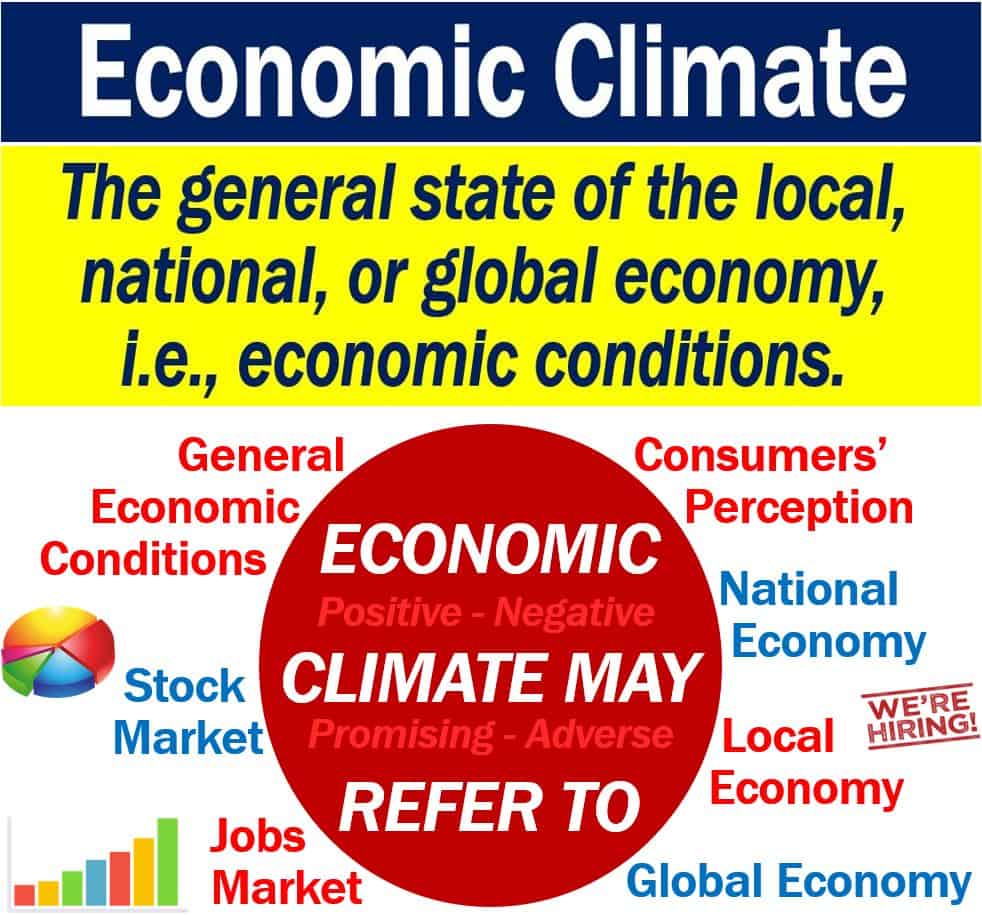The term Economic Climate refers to the general state of the regional, national, or global economy. Economic climate usually reflects the state of the jobs market, stock market, inflation, or the availability of credit. It may also reflect how consumers, businesses, economists, and investors view economic conditions.
Factors such as interest rates, consumer confidence, and governmental policies play pivotal roles in shaping the economic climate.”
The term has nothing to do with the weather or climate change. Economic climate refers to the current economic situation, i.e., economic conditions.
Business people and policymakers typically base their borrowing, lending, and investment decisions on the economic climate. It may also influence borrowing decisions.
The Cambridge Dictionary defines the term as follows:
“The general condition of the economy in a particular country or in the world.”

Economic climate and climate change
Do not confuse the term with ‘economics of climate change.’ The two terms are completely different.
Economics of climate change
The ‘economics of climate change’ refers to the study of the economic impact of climate change. Specifically, the economic costs and benefits of climate change.
It also refers to the economic impact of the measures we take to mitigate the effects of climate change.
Climate change is a large-scale, long-term change in Earth’s weather patterns and average temperatures. We often use the term ‘global warming‘ with the same meaning (when long-term temperatures are rising).
Most scientists say that our atmosphere and oceans are getting warmer. They also say that it is our fault.
Economic climate
The economic climate is simply the general state of the overall economy, i.e., the economic conditions.
The term refers to the current state of the economy of a nation, region, or the world.
Economic climates change over time, depending on where in the business cycle we are. The business cycle is a cycle of recession and recovery that the economy goes through.
Fluctuations in production and trade in a market economy cause the business cycle. We also refer to it as the boom-bust cycle.
When GDP is expanding rapidly, we say that the economic climate is positive or sound. On the other hand, when GDP is shrinking or not growing, we say that the climate is negative or adverse.
GDP stands for Gross Domestic Product. It is a measure of production that equals all the goods and services that an economy produces over a specific period.
Video – What is the Economic Climate?
This video presentation, from our YouTube partner channel – Marketing Business Network, explains what ‘Economic Climate’ means using simple and easy-to-understand language and examples.
